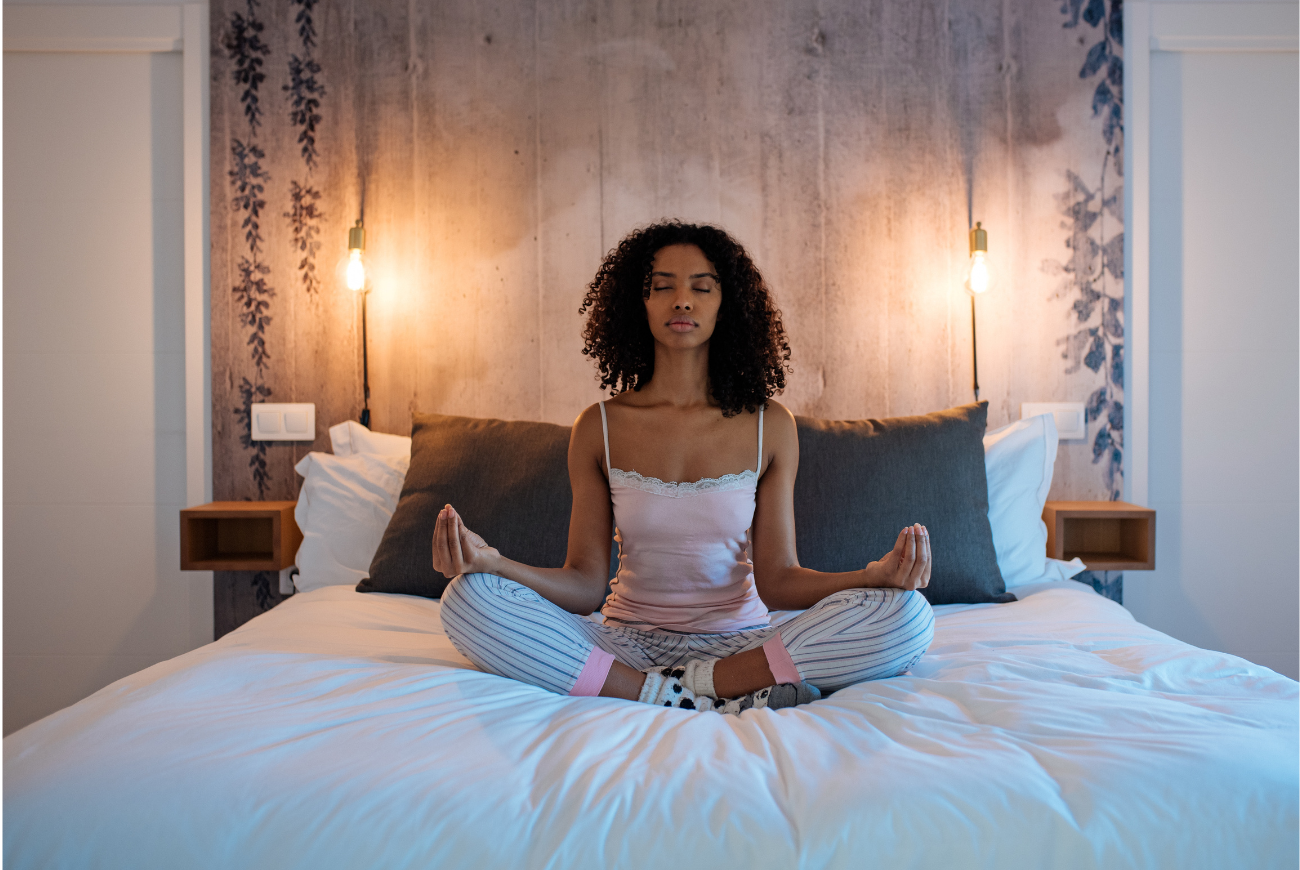Sleep is often overlooked in our busy lives, yet it is one of the most essential pillars of health and wellness. According to the Centers for Disease Control and Prevention (CDC), nearly 1 in 3 Americans struggles to get enough sleep, averaging just 6.8 hours per night—significantly less than the recommended 7 to 9 hours. Chronic sleep deprivation affects energy, focus, and even physical health, making it crucial to take active steps to improve rest. ” A good night’s sleep is not just a luxury—it’s a necessity for thriving in life. “
In this article, we’ll explore actionable strategies to help you transform your sleep habits, creating a restful night and energetic mornings. From establishing a sleep routine to embracing mindfulness techniques, these tips are your roadmap to reclaiming the restorative sleep you deserve.
Why Sleep Matters
Quality sleep is far more than just shutting your eyes for a few hours. During sleep, your body goes to work repairing cells, balancing hormones, and restoring energy levels. The long-term effects of poor sleep can be serious, including memory impairment, weakened immunity, and higher risk of chronic illnesses such as heart disease and diabetes.
” When you prioritize sleep, you’re investing in better health, sharper focus, and a more balanced life. “
Understanding the importance of sleep motivates us to embrace changes that lead to better nights and brighter days.

Building Better Sleep Habits
Establish a Consistent Sleep Routine
Creating a predictable sleep schedule is one of the most effective ways to improve your quality of rest. Try going to bed and waking up at the same time every day, including weekends. This trains your body’s internal clock, making it easier to fall asleep and wake up naturally. Consider adding a calming pre-bedtime ritual—whether it’s sipping herbal tea or reading a book—to signal to your mind that it’s time to wind down.
” Consistency is key—a regular sleep schedule unlocks the door to deeper, more restful nights. “
Craft Your Sleep Sanctuary
The environment in which you sleep has a profound impact on the quality of rest you achieve. Transform your bedroom into a sleep haven by focusing on the essentials:
- Darkness: Eliminate light sources using blackout curtains or sleep masks.
- Cool Temperature: Aim for a slightly cool room, which helps signal to your body that it’s time to rest.
- Peace and Quiet: Consider earplugs or a white noise machine if external sounds disrupt your sleep.
Your bedroom should feel like a tranquil retreat—dedicated solely to rest and relaxation.
Disconnect and Recharge
Our screens—phones, tablets, and laptops—are often the culprits behind restless nights. The blue light emitted by devices suppresses melatonin production, the hormone that signals our bodies to sleep. To counteract this:
- Turn off electronics at least an hour before bedtime.
- Replace scrolling with a soothing activity, like journaling or stretching, that helps your body prepare for sleep.
” Unplugging at night is the secret to truly recharging your mind and body. “

Supporting Sleep Through Lifestyle Choices
Nourish Your Body, Fuel Your Rest
What you consume throughout the day can influence your sleep patterns. Avoid heavy meals and stimulants, like caffeine and alcohol, close to bedtime. Instead, focus on nourishing your body with whole foods rich in nutrients that promote relaxation, such as magnesium-packed leafy greens.
Stay Active—At the Right Times
Regular exercise has been shown to improve sleep quality, thanks to its ability to lower stress and increase endorphins. However, try to avoid vigorous workouts late in the evening, as they might have the opposite effect and leave you feeling too energized to sleep.
” Your daily choices—from movement to meals—shape the way your body prepares to rest. “
Relaxation Techniques for Restful Nights
When life feels overwhelming, taking a few moments to embrace relaxation techniques can make all the difference. Meditation and deep breathing are powerful tools that calm the nervous system and ease anxiety. Similarly, a warm bath before bed can relax your muscles and prepare your body for sleep.
” Incorporating relaxation isn’t just about calming down—it’s about creating an environment where sleep can thrive. “
Conclusion
The road to better sleep begins with small, intentional changes that prioritize rest in your daily life. From establishing a consistent routine to creating a sleep-friendly environment, adopting these strategies will help you sleep well and wake up refreshed. ” Every night spent in deep, restorative sleep is a step toward becoming your healthiest, happiest self. “
Whether you’re improving your bedroom setup, unplugging from screens, or embracing mindfulness, the key is to remain patient with yourself as you build habits that support better sleep. Your body and mind will thank you for it.













